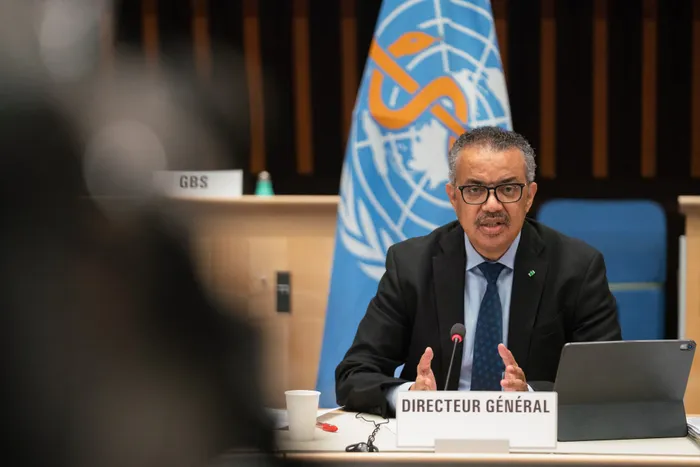Global health financing faces unprecedented disruption amid donor cuts

World Health Organization (WHO) director-general Tedros Adhanom Ghebreyesus.
Image: Christopher Black / World Health Organization / AFP
IN A WORLD increasingly grappling with public health crises, the current turmoil in global health financing could have dire consequences for millions.
World Health Organization (WHO) director-general Tedros Adhanom Ghebreyesus says global health financing faces unprecedented disruption amidst donor cuts.
During a media briefing this week, Ghebreyesus said, “We are living through the greatest disruption to global health financing in memory”.
He said that for years, they have said global health financing needs to be changed and emphasised the importance of self-reliance and domestic financing.
“Of course, donor countries can spend their money where they want, and they have the right to spend it where they want,” Ghebreyesus said.
“We are grateful to those who have, for decades, funded health systems globally.”
“But instead of an orderly decline, or an orderly withdrawal, the abrupt cuts to overseas development aid and a challenging economic and trade environment are sowing chaos in public health,” Ghebreyesus continued.
He said that, for instance, progress in combating neglected tropical diseases (NTDs), which affect over a billion individuals and disproportionately harm the most impoverished and marginalised populations, faces a significant risk of reversal.
“Thanks to the huge efforts of the US government, more than three billion treatments have been delivered to 1.7 billion people in 26 countries over the past two decades,” Ghebreyesus said.
“The combination of 1.4 billion US dollars from the United States, generous pharmaceutical donations, private sector innovation and largely public sector health workers has helped stop transmission of lymphatic filariasis, river blindness, schistosomiasis, intestinal worms and trachoma in 14 countries.”
Ghebreyesus said Bangladesh, Benin, Cambodia, Colombia, Ecuador, Ghana, Guatemala, Lao People’s Democratic Republic, Mali, Mexico, Nepal, Niger, Togo and Vietnam achieved elimination of at least one NTD.
However, the abrupt cuts and withdrawal of US financial support, coupled with decreased investments in NTDs from other donor nations, have resulted in the suspension of treatment programs for over 140 million people and research on new medical tools being cut.
“But it doesn’t have to be this way, and we urge governments not to turn their backs on the poorest and most marginalised and undermine decades of progress,” Ghebreyesus said.
“Unfortunately, this is just the tip of the iceberg.
“Diseases continue to evolve, and with a heating world and protracted conflicts, there are continuing outbreaks and threats to health that need action.”
US President Donald Trump signed an executive order to withdraw the US from the WHO.
Trump’s executive order said the US noticed its withdrawal from the WHO in 2020 due to the organisation’s mishandling of the Covid-19 pandemic that arose out of Wuhan, China, and other global health crises, its failure to adopt urgently needed reforms, and its inability to demonstrate independence from the inappropriate political influence of WHO member states.
It also said the US intends to withdraw from the WHO. The Presidential Letter to the Secretary-General of the United Nations, signed on January 20, 2021, that retracted the United States’ July 6, 2020, notification of withdrawal is revoked.